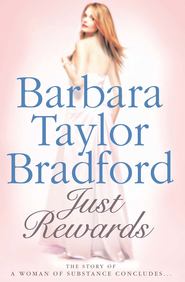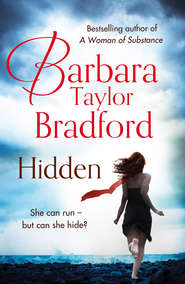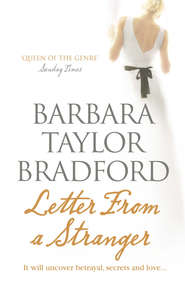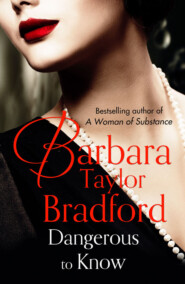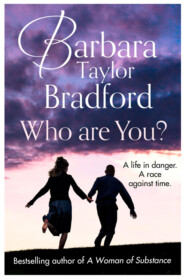По всем вопросам обращайтесь на: info@litportal.ru
(©) 2003-2024.
✖
Everything to Gain
Автор
Год написания книги
2018
Настройки чтения
Размер шрифта
Высота строк
Поля
‘What a shame nobody cares enough about this lovely old place to look after it properly, to give it a fresh coat of paint,’ Andrew had murmured, and, opening the door, he got out of the car. Instructing Jenny, our English au pair, to stay inside with the children, I had quickly followed my husband.
In a way I cannot explain, certainly not in any rational sense, the house seemed to beckon us, pull us towards it, and we had found ourselves hurrying over to the front door, noticing the peeling paint and tarnished brass knocker as we did. Andrew had banged the latter, whilst I peeked in through one of the grimy windows.
Murky though the light was inside, I managed to make out pieces of furniture draped in dustcloths and walls covered with faded, rose-patterned wallpaper. There were no signs of life and naturally no one answered Andrew’s insistent knocking. ‘It looks totally deserted, Mal, as if it hasn’t been lived in for years,’ he said, and after a moment, wondered out loud: ‘Could it be for sale, do you think?’
As he put his arm around my shoulders and walked me back to the car, I found myself saying, ‘I hope it is,’ and I still remember the way my heart had missed a beat at the thought that it might very well be on the market.
A few seconds later, driving away down the winding road, I suddenly spotted the broken wooden sign, old and weatherworn and fallen over in the long grass. When I pointed it out to Andrew, he brought the car to a standstill instantly. I opened the door, leaped out and sprinted across to the grass verge to look at it.
Even before I reached the dilapidated sign, I knew, deep within myself, that it would say that the house was for sale. And I was right.
During the next few hours we had managed to find our way back to Sharon, hunted out the real-estate broker’s office, talked to her at length, then returned to the old white house on the hill. She had led the way out of town, we had followed her, and we had been almost too excited to speak to each other, hardly daring to hope that the house would be right for us.
‘It doesn’t have a name,’ Kathy Sands, the real-estate broker had remarked, as she had fitted the key in the lock and opened the front door. ‘It’s always been known as the Vane place. Well, for about seventy years anyway.’
All of us trooped inside.
Jamie and Lissa were carefully shepherded by Jenny; I carried Trixy, our little Bichon Frise, listening to Kathy’s commentary as we followed her along the gallery-like entrance, which, Andrew pointed out, was somewhat Elizabethan in style. ‘Reminds me of Tudor interior architecture,’ he had explained, glancing around admiringly as he spoke. ‘In fact, it’s rather like the gallery at Parham,’ he added. ‘You remember Parham, don’t you, Mal? That lovely old Tudor house in Sussex.’
I had nodded in response, smiling at him, sharing the remembrance of the wonderful two weeks’ holiday we had had in England the year before. It had been like a second honeymoon for us. After a week with Diana in Yorkshire we had left the twins with her and gone off alone together for a few days.
Kathy Sands was a local woman born and bred, a fund of information about everything, including the previous owners – and over the last couple of centuries at that. According to her, only three families had owned the house from the time it had been built in 1790 to the present. These were the Dodds, the Hobsons and the Vanes. Old Mrs Vane, who was formerly a Hobson, had been born in the house and had continued to live there after her marriage to Samuel Vane. Eighty-eight, widowed, and growing rather frail, she had finally had to give up her independence, had gone to live with her daughter in Sharon. And so she had put the house, which had been her home for an entire lifetime, on the market two years earlier.
‘Why hasn’t it been sold? Is there something wrong with it?’ I had asked worriedly, giving the broker one of those penetrating looks which I had learned so perfectly from my mother years before.
‘No, there’s nothing wrong with it,’ Kathy Sands had replied. ‘Nothing at all. It’s just a bit off the beaten track, too far from Manhattan for most people who are looking for a weekend place. And it is rather big.’
It did not take Andrew and me long to understand why the real-estate broker had said the house was big: it was huge. And yet despite its size, it had a compactness about it, and it was not as sprawling and spread out as it appeared to be from the outside. Although it did have more rooms than we really needed, it was a neat and tidy house, to my way of thinking, and there was a natural flow to the layout. Downstairs the rooms opened off the long gallery, upstairs from a central landing. Because its core was very old, it had a genuine quaintness to it, with floors that dipped, ceilings that sloped, beams that were lopsided. Some of the windows had panes made of antique blown glass dating back to the previous century, and there were ten fireplaces, eight of which were in working order, Kathy had told us that afternoon.
All in all, the house was something of a find and Andrew and I had known it. Never mind that it was farther from New York than we had ever planned to have a weekend home. Somehow we would manage the drive, we had reassured each other that afternoon. Andrew and I had fallen in love with the place and we wanted it, and by the end of the summer it was ours, as was a rather large mortgage.
We spent the rest of 1986 sprucing up our new possession, camping out in it as we did, and loving every moment. For the remainder of that summer and autumn our children became true country sprites, practically living outdoors, and Trixy revelled in chasing squirrels, rabbits and birds. As for Andrew and I, we felt a great release escaping the tensions of the city and he the many pressures of his high-powered job.
Finally, in the spring of 1987, we were able to move in properly, and then we set out taming the grounds and planting the various gardens around the house. This was some task in itself, and as challenging as getting the house in order. Andrew and I enjoyed working with Anna, the gardener we had found, and Andrew discovered he had green fingers, something he had never known. Everything seemed to sprout under his hands.
It did not take either of us long to understand how much we looked forward to leaving the city, and as the weeks and months passed we became more and more enamoured of this breathtaking corner of Connecticut.
Now, as I walked through the sunroom and into the long gallery, I paused for a moment, stood admiring the gentle serenity of our home.
Sunlight was spilling into the hall from the various rooms, and in the liquid rafts of brilliant light thousands of dust motes rose up, trembling in the warm July air. Suddenly, a butterfly, delicately wrought, jewel-tinted, floated past me to hover over a bowl of cut flowers on the table in the middle of the gallery.
I caught my breath, wishing I had a paintbrush and canvas at hand, so that I could capture the innocent beauty of this scene. But they were in my studio, and by the time I went to get them and returned, the butterfly surely would have flown away, I was quite certain of that. So I just continued to stand there, looking.
As I basked in the peacefulness of the early morning, thinking what a lucky woman I was to have all that I had, there was no possible way for me to know that my life was going to change – and so profoundly, so irrevocably it would never be the same again.
Nor did I know then that it was this house which would save me from the destructiveness within myself. It would become my haven, my refuge from the world. And in the end it would save my life.
But because I knew none of this, I walked blithely on down the gallery and went into the kitchen, happy at the prospect of the holiday weekend ahead, lighthearted and full of optimism about my life and the future.
Automatically, I turned on the radio, stood drinking a cup of coffee I had made earlier, while toasting a slice of bread and listening to the morning news. As I did, I studied a long list of chores I had made the night before, and mentally planned my day. Then, once I had eaten the toast, I ran upstairs to take a shower and get dressed.
Three (#ulink_cded7129-fca7-5050-8018-da9ffac2191f)
I have red hair, green eyes and approximately two thousand freckles. I don’t think I’m all that pretty, but Andrew does not agree with me. He is forever telling me that I’m beautiful. But, of course, beauty lies in the eye of the beholder, so I’ve been told, and anyway Andrew is prejudiced, I have to admit that.
All I know is that I wish I didn’t have these irritating freckles. If only my skin were lily white and clear I could live with my vivid colouring. My unruly mop of auburn curls has earned me various nicknames over the years, the most popular being Ginger, Carrot Top and Red, none of which have I ever cherished. Quite the opposite, in fact.
Since I have always been somewhat disdainful of my mother’s preoccupation with self, I have schooled myself not to be vain. But I suspect that secretly I am, and just as much as she is, if the truth be known. But then I think that most people are vain, care a lot about the way they look and dress, and the impression they make on others.
Now, having showered and dressed in a cotton T-shirt and white shorts, I stood in front of the mirror, peering at myself and grimacing at my image. I realized that I had spent far too long in the garden unprotected yesterday afternoon; my freckles seemed to have multiplied by the dozen.
A few fronds of hair frizzled around my temples and ears, and I sighed to myself as I slicked them back with water, wishing, as I so frequently did, that I was a pale, ethereal blonde. As far as I’m concerned, my colouring is much too vibrant, my eyes almost unnaturally green. I have inherited my colouring from my father; certainly there is no mistaking whose daughter I am. My eyes mirror his, as does my hair. Mind you, his is a sandy tone now, although it was once as fiery as mine, and his eyes are not quite as brightly green as they once were.
That’s one of the better things about getting older, I think: everything starts to fade. I keep telling myself that I’m going to look like the incomparable Katharine Hepburn when I’m in my seventies. ‘Let’s only hope so,’ Andrew usually remarks when I mention this little conceit of mine. And it is wishful thinking on my part; what woman doesn’t want those lean, thoroughbred looks of hers, red-headed or not.
Brushing back my hair, I secured it with a rubber band, then tied a piece of white ribbon on my pony tail and ran down the stairs.
My little office, where I did paperwork and household accounts, was situated at the back of the house, looking out towards the vegetable garden. Seating myself at the large old-fashioned desk, which we had found at Cricket Hill, a local antique shop, I picked up the phone and dialled our apartment in New York.
On the third ring my mother-in-law answered with a cheery, very British, ‘Hello?’
‘It’s me, Diana,’ I said, ‘and the top of the morning to you.’
‘Good morning, darling, and how is it out there?’ she asked. Not waiting for my response, she went on, ‘It’s frightfully hot here in the city, I’m afraid.’
‘I thought it would be,’ I answered. ‘And we’re having the same heat wave in Connecticut. All I can say is, thank God for air-conditioning. Anyway, how are my holy terrors today?’
She laughed. ‘Divine. And I can’t tell you how much I relish having them to myself for a couple of days. Thanks for that, Mal, it’s so very sweet and considerate of you, letting me get to know my grandchildren in this way.’
‘They love you, Diana, and they enjoy being with you,’ I said, meaning every word, then asked, ‘And what are you planning to do with them?’
‘I’m taking them to the Museum of Natural History, after breakfast. You know how they are about animals, and especially dinosaurs. Then I thought I’d bring them home for a light lunch, since it’s so nice and cool in the flat. I promised to take them to F. A. O. Schwartz after their nap. We’re going shopping for toys.’
‘Don’t spoil them,’ I warned. ‘Doting grandmothers have been known to spend far too much money at certain times. Like when they’re on holiday visits.’
Diana laughed, and over her laughter I heard my daughter wailing in the background. Then Lissa said in a shrill voice, ‘Nanna! Nanna! Jamie’s broken my bowl and the goldfish is on the carpet. Dying.’ The wailing grew louder, more dramatic.
‘I didn’t do it on purpose!’ Jamie shouted.
My mother-in-law had not spoken for a moment, no doubt distracted by this sudden racket exploding around her. Now she exclaimed, ‘Oh God, hang on a minute, Mallory, the fish is gasping. I think I’d better grab a glass of water and pop the fish in it. Won’t be a tick.’ So saying she put the phone down.
I strained to hear my children.
Jamie cried plaintively, ‘I’m sorry, Lissa.’
‘Pick up the phone and speak to your mother,’ I heard Diana instruct from a distance, sounding very brisk and businesslike. ‘She’s waiting to say hello to you, darling. Go on, Lissa, speak to your mummy,’ my mother-in-law commanded in a tone that forbade argument.
After a moment, a small tearful voice trickled down the wire. ‘Mommy, Jamie’s killed my goldfish. Poor little fish.’






